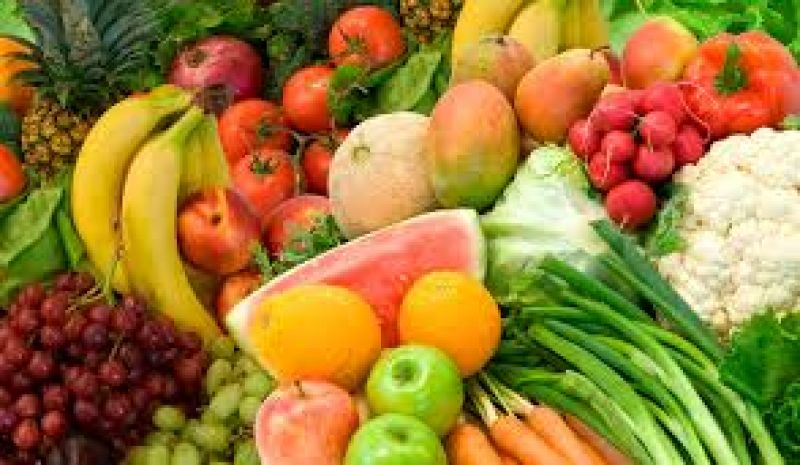You are what you eat
Posted by Gabriel Blessing | 9 years ago | 3,123 times

Oftentimes, we find it tasking to choose the right kind of food our body needs. This is true, especially when we are to plan a meal timetable. We struggle to prevent ourselves from taking too much of a particular nutrient. It becomes more tasking when you have a sick person at home whose diet is monitored.
Eating nutritious meal guarantees strong, fit and healthy body, and as the body grows, it needs food to replenish and renew its parts. Each time you eat, the food substance becomes a part of you; nourishing, protecting, and helping you to maintain an optimal state of health. This is to say that the food you eat performs three basic functions which include the provision of calories to cope with energy demands of the body; required for growth and development; and to maintain and run body functions.
Note that the food you eat, as well as when you eat it determine in part, how well, active and long you live. Therefore, it is also important to appropriate meals.
There are six classes of nutrients; Carbohydrates, Proteins, Fats, Vitamins, Minerals and Water. Three of them, Carbohydrates, Protein and Fats supply energy for doing work and maintaining steady body temperature. Fats provide 9kcal/g but both Carbohydrate and Protein (each) supply 4kcal/g. Thus the three energy yielding nutrients provide calories. Even though alcohol is not a nutrient, it provides 7kcal/g thus lying between fats and carbohydrate as energy source.
Each nutrient contributes to your body weight. This is because at the end of metabolism (the breakdown of food) the end products are stored in the body while the waste products are excreted. For instance, glycogen (the form in which glucose, the end product of carbohydrate is stored) is stored in the liver, fats are stored in fat cells called adipose tissues as Triacylglycerides while the muscles to a lesser extent store glycogen and only use them for its needs. Enough of all these biochemical terms! You will say.
Well, several several food substances belong to more than one class of nutrients. These of course vary in their proportion. In the selection of food to eat, it is important to understand how each food affects blood glucose and the secretion of important hormones like insulin. This is because some food substances cause a rapid rise in blood glucose and blood insulin while some others do not, but rather induce a slow rise. This rapid and slow action is strongly dependent on the rate of absorption and digestion of food substances. In other words, when you take in food substances that are easily absorbed; junk food for instance, they are quickly absorbed hence providing a rapid large rise in blood glucose and blood insulin, but with food substances like yam, beans, cassava, maize etc., there is slower rise because of absorption rate. The body system being a very sensitive entity reacts to such sudden rise in a discomforting way. This reaction could lead to preventable ailments.
With the growing interests in fast foods, majorly as a result of busy schedule or probably lack of interest in cooking, we obviously can't do away with junk foods, but the danger it exposes one to can be disastrous.
How then can we create a balance?
Having understood that some food substances can cause a rapid rise in blood glucose and blood insulin, it becomes pertinent that we adequately plan our meals. This of course, will enable us prevent preventable illnesses like Obesity, Diabetes mellitus, Cancer, hypertension etc.
Before we get into some tips that will guide us in making the right choice of meal, it is important to know that the process of food preparation can greatly affect digestibility of food. This is to say that overcooked foods, salty foods, salty condiments and salt, enhances digestibility, thus rapid rise in blood glucose and blood insulin. This can be dangerous! In addition, the more ripe a fruit is, the easier the absorption. Therefore, avoid too much consumption of fruits that are over-ripped.
In view of that, it then portends that yam, beans, rice and cassava which are less digestible when properly cooked can be made easily digestible if overcooked or salty. You have to watch it!
7 tips to guide you in eating right
1. When making selection of your daily meals, ensure that the proportion of meals that digest easily are lower than those which are not easily digested. The reason is as stated above. For instance, you can take a meal as light as tea with bread in the morning hours, yam with sauce in the afternoon and probably unripe plantain porridge at night.
2. Ensure that each meal composes the 6 classes of nutrient in right proportion.
3. Like we saw earlier, overcooked meals should be avoided in totality. Also avoid over-ripped fruits.
4. A lot of us have formed the habit of adding salt to an already-served meal. This is bad. We advise that it should be avoided
5. Avoid eating hot foods. Allow your food to cool to room temperature. This is because the crystalline nature of starch in hot foods gelatinise (turns into gel), thereby making it easily digestible. But in cool foods, the starch recrystallises and becomes less digestible. Have you ever wondered why you easily get hungry after taking a hot pap, rice, yam etc.? The above is the reason. So, not just for less digestibility but if you also want to save cost, eat your meal when it can slow the rise of blood glucose and blood insulin.
6. Look out for foods that contain fibre; fruits have a lot of it. This is because they slow down digestion, aid bowel movement, soften stool, reduce body cholesterol and bile acids etc.
7. For the busy person, ensure you eat a meal that is less digestible before starting up your busy schedule. This can sustain you while you take your junk food.
Readers Comments
comment(s)
No comments yet. Be the first to post comment.








